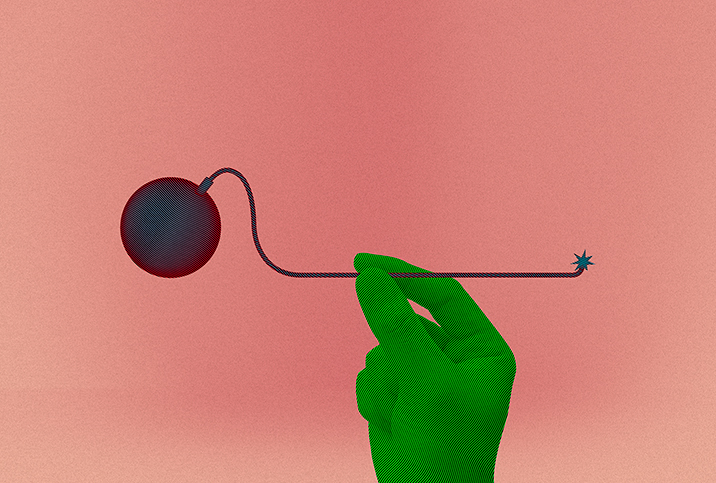Worried About Premature Ejaculation? Ask These 6 Questions

Premature ejaculation (PE) can profoundly affect a man's self-image and ability to stay in relationships. Over time, it can cause deep and scarring emotional damage.
However, there are ways your doctor can help.
We'll define PE and identify some potential underlying causes within the framework of six questions to ask your doctor if you think you're experiencing the condition.
1. What is PE?
Premature ejaculation is largely subjective, meaning it's generally defined as when a man ejaculates sooner than he or his partner would like during sexual intercourse.
The Mayo Clinic defines PE as when a man:
- Always or almost always ejaculates within 60 seconds of entering his partner
- Is unable to control or delay his ejaculation during sex all or most of the time
- Finds this situation upsetting or frustrating, driving him to avoid sexual contact
Studies suggest both psychological and biological causes of PE. With up to a third of men reporting they've experienced it, the problem would seem to be widespread. However, treatment is available.
2. Is my case considered PE?
First things first. As the Mayo Clinic explains, PE is based partially on how men feel about how long it takes them to ejaculate. Many guys may perceive themselves as coming too fast to please their partner or to meet some ideal standard.
Many men have no doubt been steeped in expectations heightened by porn, but here's a secret, fellas: For some of us at least, the magic of video editing is to blame for our expectations for how long sex is supposed to last.
If physical factors check out OK, you might simply need to adjust your outlook, not how you approach sex.
3. What's the underlying cause of my PE?
If you're genuinely experiencing PE, your doctor will likely ask you questions about potential causes, both psychological and physical.
Psychological issues that may need to be addressed include:
- Anxiety, especially about sexual performance
- Depression
- Sexual abuse history
- Guilt or shame around sex
- Low self-esteem
Potential physical causes of PE include:
- Urinary tract infections (UTIs) or inflammation
- Hormone imbalances
- Chemical imbalances in the brain and other neurological issues
Your doctor might ask: Is this a new experience or ongoing? How is your relationship with your partner? Are you also experiencing erectile dysfunction?
4. How might other factors such as ED affect my performance?
About 30 percent of men with erectile dysfunction (ED) also experience PE, according to a 2019 study in the journal Andrology. If you're having issues with both PE and ED, your doctor may offer therapeutic interventions for ED first. Men experiencing ED often feel rushed to finish during sex due to fear their erection will go away, so resolving ED may make the PE problem go away simultaneously.
5. What can I do about PE on my own?
Some methods for delaying ejaculation include:
- Warming up before the main event—Masturbating an hour or two before sex can help prevent you from becoming overexcited or oversensitive to sensations.
- Edging—This is the art of taking yourself to the brink of orgasm then pulling back repeatedly when masturbating. Edging can help you learn your body's signals so you know when to slow down during sex.
- Kegel exercises—Strengthening your pelvic floor muscles can help you get better control over the timing of your orgasm.
- Therapy—Talking to a mental health professional, as well as your partner, can help with sexual issues, including PE, especially if it's causing distress or affecting your relationship.
6. What treatments are available?
Your doctor may suggest treatments including:
- Antidepressants—Selective serotonin reuptake inhibitors (SSRIs) such as Prozac can help delay orgasm, but they may have unwanted effects, as well.
- Tramadol—This pain reliever is also known to help delay male orgasm.
- Topical creams—Numbing creams or sprays can help make you less sensitive.
Premature ejaculation is an anxiety-producing, distressing condition that should be addressed medically just like any other medical condition. Don't hesitate to talk to your doctor about what you're going through so they can help you address it and get back on track sooner rather than later.


















